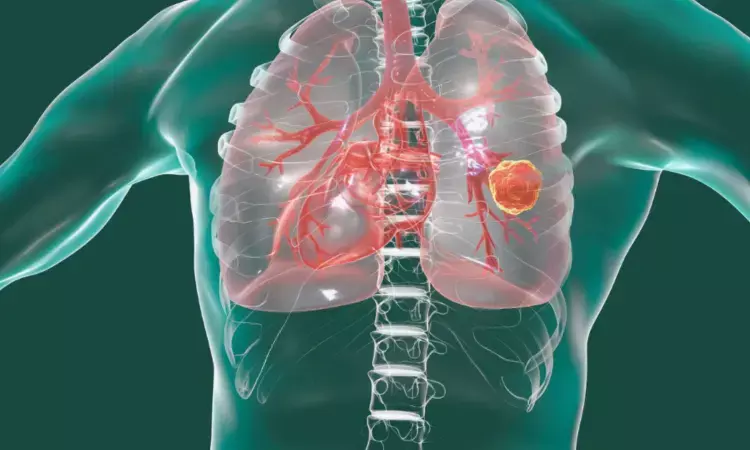- Home
- Medical news & Guidelines
- Anesthesiology
- Cardiology and CTVS
- Critical Care
- Dentistry
- Dermatology
- Diabetes and Endocrinology
- ENT
- Gastroenterology
- Medicine
- Nephrology
- Neurology
- Obstretics-Gynaecology
- Oncology
- Ophthalmology
- Orthopaedics
- Pediatrics-Neonatology
- Psychiatry
- Pulmonology
- Radiology
- Surgery
- Urology
- Laboratory Medicine
- Diet
- Nursing
- Paramedical
- Physiotherapy
- Health news
- Fact Check
- Bone Health Fact Check
- Brain Health Fact Check
- Cancer Related Fact Check
- Child Care Fact Check
- Dental and oral health fact check
- Diabetes and metabolic health fact check
- Diet and Nutrition Fact Check
- Eye and ENT Care Fact Check
- Fitness fact check
- Gut health fact check
- Heart health fact check
- Kidney health fact check
- Medical education fact check
- Men's health fact check
- Respiratory fact check
- Skin and hair care fact check
- Vaccine and Immunization fact check
- Women's health fact check
- AYUSH
- State News
- Andaman and Nicobar Islands
- Andhra Pradesh
- Arunachal Pradesh
- Assam
- Bihar
- Chandigarh
- Chattisgarh
- Dadra and Nagar Haveli
- Daman and Diu
- Delhi
- Goa
- Gujarat
- Haryana
- Himachal Pradesh
- Jammu & Kashmir
- Jharkhand
- Karnataka
- Kerala
- Ladakh
- Lakshadweep
- Madhya Pradesh
- Maharashtra
- Manipur
- Meghalaya
- Mizoram
- Nagaland
- Odisha
- Puducherry
- Punjab
- Rajasthan
- Sikkim
- Tamil Nadu
- Telangana
- Tripura
- Uttar Pradesh
- Uttrakhand
- West Bengal
- Medical Education
- Industry
Obesity Paradox: Better Survival in Obese Lung Cancer Patients with Strong Muscle Health, Study Finds

Korea: A recent study published in the Radiology Journal has highlighted the significant role of obesity and skeletal muscle mass in influencing postoperative survival in patients with non-small cell lung cancer (NSCLC) who undergo curative resection. Researchers found that obesity was linked to better overall survival (OS) following curative resection in NSCLC patients, especially among those who did not exhibit low skeletal muscle mass (LSMM) or myosteatosis.
"In a study of more than 7,000 patients, those classified as obese (body mass index [BMI] ≥25) had a 21% lower risk of death compared to those without obesity (HR 0.79). This association was particularly strong among patients without low skeletal muscle mass or myosteatosis (HR 0.77)," the researchers reported.
The researchers note that a thorough evaluation of skeletal muscle health is essential to understanding the link between improved clinical outcomes and obesity, as defined by body mass index (BMI; calculated as weight in kilograms divided by height in meters squared), in lung cancer. However, there have been few studies exploring this relationship. To address this gap, Ji Hyun Lee, Sungkyunkwan University School of Medicine, Samsung Medical Center, Seoul, Korea, and colleagues aimed to investigate the association between BMI-defined obesity and survival in patients with non-small cell lung cancer who underwent curative resection, with particular emphasis on skeletal muscle status assessed through CT imaging.
For this purpose, the researchers conducted a retrospective study on Korean non-small cell lung cancer patients who underwent curative resection between 2008 and 2019. Patients were categorized into nonobese (BMI <25) and obese (BMI ≥25) groups. Skeletal muscle status was assessed via CT scans at the level of the third lumbar vertebrae, with low skeletal muscle mass defined as the sex-specific lowest quartile. Cox regression analysis was performed to assess the associations between BMI, muscle status, and overall survival.
The research unveiled the following findings:
- The study included 7,076 patients, with a mean age of 62.5 years, of whom 4,081 were male. Of these, 35.5% had a BMI of 25 or greater, classifying them as obese.
- In patients without low skeletal muscle mass and myosteatosis, the obese group had longer overall survival compared to the nonobese group (HR 0.77).
- The association between obesity and lower mortality was observed only in male patients (HR 0.72).
- There was a lower mortality risk in patients who had ever smoked (HR 0.71) and had no LSMM or myosteatosis.
- The effect varied according to sex and smoking status, with P values ranging from <.001 to .02 for interaction.
The study identified a link between BMI–defined obesity and improved overall survival in patients with non–small cell lung cancer who underwent curative resection, provided that their CT-measured skeletal muscle mass and radiodensity were within normal ranges. The researchers suggest that while BMI is a useful and practical tool for initial assessment, it should be supplemented with detailed body composition measurements to deeply understand the obesity paradox in non–small cell lung cancer.
"The findings underscore the significance of the quantity and quality of skeletal muscle in explaining the relationship between obesity and improved survival. Further research exploring the biological mechanisms connecting preserved skeletal muscle status with better survival in individuals with obesity, particularly focusing on metabolic health, is essential," the researchers concluded.
Reference:
Lee JH, Kang D, Lee J, Jeon YJ, Park SY, Cho JH, Choi YS, Kim J, Shim YM, Kong S, Kim HK, Cho J. Association of Obesity and Skeletal Muscle with Postoperative Survival in Non-Small Cell Lung Cancer. Radiology. 2025 Jan;314(1):e241507. doi: 10.1148/radiol.241507. PMID: 39873605.
Dr Kamal Kant Kohli-MBBS, DTCD- a chest specialist with more than 30 years of practice and a flair for writing clinical articles, Dr Kamal Kant Kohli joined Medical Dialogues as a Chief Editor of Medical News. Besides writing articles, as an editor, he proofreads and verifies all the medical content published on Medical Dialogues including those coming from journals, studies,medical conferences,guidelines etc. Email: drkohli@medicaldialogues.in. Contact no. 011-43720751


